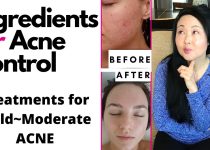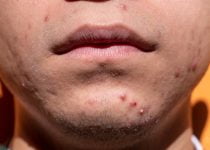Acne: A Journey To Clear Skin
Acne is a common skin condition that affects millions of people worldwide. It can be a frustrating and embarrassing problem, but there are effective treatments available. In this blog post, we will discuss the causes of acne, the different types of treatments, and how to prevent future breakouts.
Acne is caused by a combination of factors, including:
* **Hormonal changes:** Androgens, which are hormones that increase during puberty, can stimulate the sebaceous glands to produce more oil.
* **Bacteria:** Propionibacterium acnes (P. acnes) is a bacteria that lives on the skin and can cause inflammation and infection.
* **Clogged pores:** Dead skin cells and sebum can clog the pores, leading to the formation of whiteheads, blackheads, and pimples.
There are several different types of acne, including:
* **Mild acne:** This type of acne is characterized by a few whiteheads and blackheads.
* **Moderate acne:** This type of acne is characterized by more numerous whiteheads, blackheads, and pimples.
* **Severe acne:** This type of acne is characterized by large, painful cysts and nodules.
The treatment for acne depends on the severity of the condition. Mild acne can often be treated with over-the-counter products, such as benzoyl peroxide or salicylic acid. Moderate to severe acne may require prescription medications, such as retinoids, antibiotics, or oral contraceptives.
In addition to medication, there are a number of things you can do to help prevent future breakouts, including:
* **Wash your face twice a day:** Use a gentle cleanser and avoid scrubbing your face too hard.
* **Exfoliate your skin:** Exfoliation helps to remove dead skin cells and prevent pores from becoming clogged.
* **Moisturize your skin:** Moisturizing your skin helps to keep it hydrated and prevent it from becoming dry and irritated.
* **Avoid picking at your skin:** Picking at your skin can lead to scarring.
* **Eat a healthy diet:** Eating a healthy diet can help to improve your overall health and well-being, which can also have a positive impact on your skin.
If you are struggling with acne, it is important to see a dermatologist to get the best possible treatment. With the right treatment, you can achieve clear, healthy skin.


